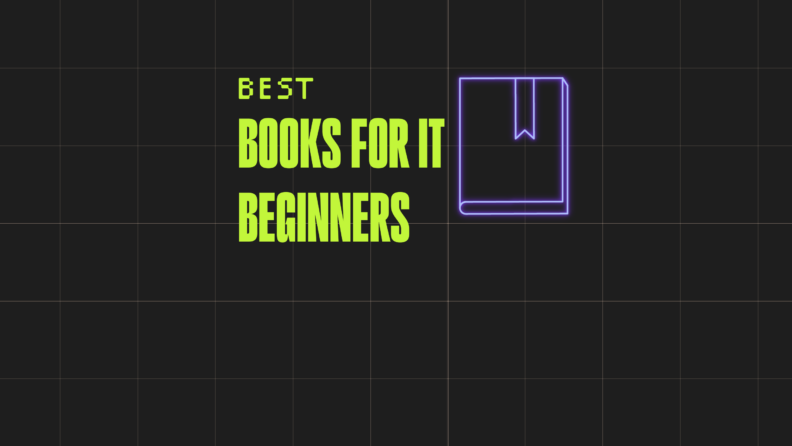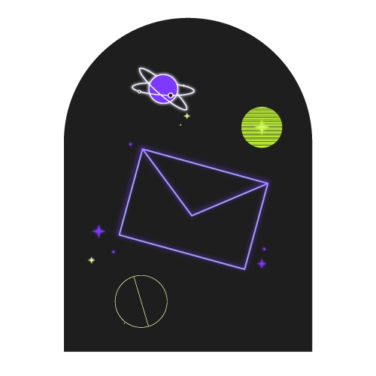Are you an IT beginner? Venturing into the world of information technology might feel like you've been dropped in a digital jungle without a map. Books are your best allies. They serve as invaluable guides, providing clarity, wisdom, and actionable insights. Check out my picks for the best books for IT beginners.
I have a personal library brimming with IT-focused books that share the latest strategies and new technologies to consider.
17 Best Books for IT Beginners
I've handpicked these titles for your IT initiation journey.
- Python Crash Course by Eric Matthes
- The Pragmatic Programmer by Andrew Hunt and David Thomas
- Clean Code: A Handbook of Agile Software Craftsmanship by Robert C. Martin
- You Don't Know JS by Kyle Simpson
- Head First Design Patterns by Eric Freeman and Elisabeth Robson
- The Linux Command Line by William E. Shotts Jr.
- Networking For Dummies by Doug Lowe
- CompTIA Security+ Get Certified Get Ahead by Darril Gibson
- Database Design for Mere Mortals by Michael J. Hernandez
- HTML and CSS: Design and Build Websites by Jon Duckett
- Head First Java by Kathy Sierra and Bert Bates
- Beginning Programming All-In-One Desk Reference For Dummies by Wallace Wang
- Cloud Computing for Dummies by Judith Hurwitz, Robin Bloor, Marcia Kaufman, and Fern Halper
- The Self-Taught Programmer by Cory Althoff
- Mastering Blockchain by Imran Bashir
- Cybersecurity – Attack and Defense Strategies by Yuri Diogenes and Erdal Ozkaya
- IT Architecture For Dummies by Kalani Kirk Hausman and Susan Cook
17 Best Books for IT Beginners
1. Python Crash Course by Eric Matthes
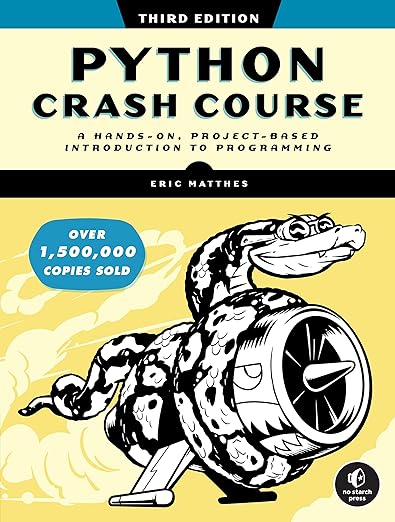
Summary:
Dive into the world of Python programming with Eric Matthes' comprehensive guide. Designed for those new to coding, this book offers hands-on projects that allow readers to build applications and games from scratch, ensuring a solid understanding of Python.
What You'll Learn:
Grasp the basics of Python, build interactive visualizations, and tackle real-world projects that range from games to data visualizations.
Why You Should Read It:
This book is an engaging and practical introduction to Python, making it perfect for newbies or programmers seeking a refresher.
Quote From The Book:
“Learning to program is hard because writing code is not the main problem. Learning to think programmatically is the challenge.”
About The Author:
Eric Matthes is a seasoned educator and self-taught programmer who emphasizes the importance of practice when learning to code. He teaches computer science at the high school level and frequently contributes to the Python community. You can find him on LinkedIn, Twitter, and his personal website.
2. The Pragmatic Programmer by Andrew Hunt and David Thomas
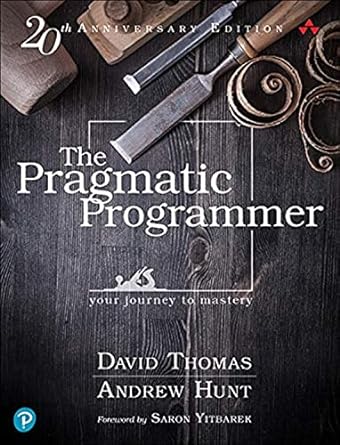
Summary:
Andrew Hunt and David Thomas bring forth their years of experience to share tips, techniques, and best practices for every developer aiming for mastery.
What You'll Learn:
Absorb best practices for software development, from writing flexible code to efficient debugging and everything in between, in this in-depth book.
Why You Should Read It:
It's an industry classic for a reason—this book’s practical advice will sharpen your development skills and deep learning, whether you’re a novice or a seasoned pro.
Quote From The Book:
“Don't leave "broken windows" (bad designs, wrong decisions, or poor code) unrepaired. Fix each one as soon as it is discovered.”
About The Author:
Andrew Hunt and David Thomas are industry veterans with decades of combined experience in software development and consultancy. Their insights have shaped modern software methodology, and their commitment to continuous learning resonates throughout their work.
3. Clean Code: A Handbook of Agile Software Craftsmanship by Robert C. Martin
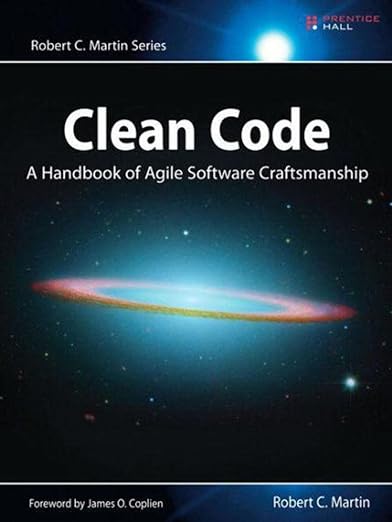
Summary:
Robert C. Martin, known fondly in the industry as "Uncle Bob," presents a book that challenges programmers to elevate their craft. By focusing on writing clean, maintainable code, this handbook provides developers with tools and step-by-step tutorials to produce high-quality software.
What You'll Learn:
Discover the principles and patterns of writing clean code and understand the nuances that separate good code from great code.
Why You Should Read It:
For anyone serious about software development, understanding the ethos of writing clean code is non-negotiable—and this book is the definitive guide.
Quote From The Book:
“Truth can only be found in one place: the code.”
About The Author:
Robert C. Martin, a software engineer with over four decades of experience, is a key figure in the Agile and software craftsmanship movements. His dedication to producing clean, well-structured code has set industry standards for developers around the world.
4. You Don't Know JS by Kyle Simpson
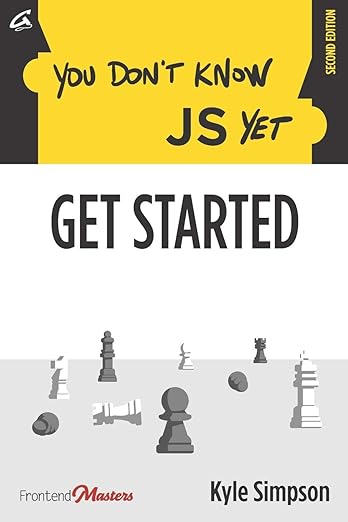
Summary:
Delve deep into JavaScript's core mechanisms with Kyle Simpson's insightful series. It's not about knowing JavaScript on the surface but understanding its heart and soul.
What You'll Learn:
Explore the intricacies of scope, closures, prototypes, asynchronous behaviors, and more in JavaScript.
Why You Should Read It:
JavaScript is everywhere, and with this book, you'll be equipped with a profound understanding of the programming language—transcending surface-level knowledge.
Quote From The Book:
“Code that you cannot trust to behave correctly under all conditions is code that you don't understand well enough.”
About The Author:
Kyle Simpson, also known as "Getify" in the developer community, is an evangelist of the open web. A passionate speaker and teacher, Kyle devotes his time to writing, teaching, and contributing to the world of JavaScript. Engage with him on LinkedIn.
5. Head First Design Patterns by Eric Freeman and Elisabeth Robson
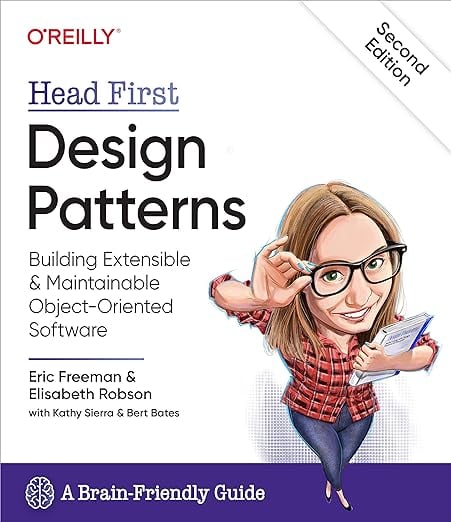
Summary:
Eric Freeman and Elisabeth Robson demystify design patterns with an engaging, visual, and intuitive approach that's characteristic of the Head First series.
What You'll Learn:
Understand the core design patterns that are crucial for every developer and how to implement them in real-world applications.
Why You Should Read It:
Design patterns are a timeless toolkit for developers. With this book, not only will you learn them, but you'll also grasp the why and how behind each pattern.
Quote From The Book:
“When you see a problem in your design, the problem isn’t necessarily the problem. It’s your design's response to the problem that can cause real headaches.”
About The Author:
Eric Freeman is a tech enthusiast and best-selling author known for making complex subjects accessible. Elisabeth Robson, co-founder of WickedlySmart, has a keen interest in educating the next generation of tech leaders.
6. The Linux Command Line by William E. Shotts Jr.
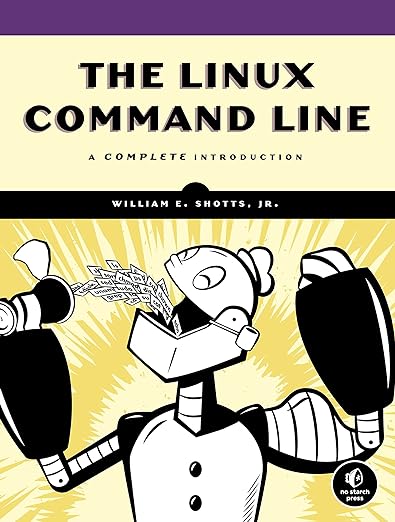
Summary:
An indispensable resource for Linux newcomers and veterans alike, William E. Shotts Jr.'s guide is the definitive manual for harnessing the power of the Linux command line.
What You'll Learn:
From basic commands to advanced scripting, grasp the full potential of the Linux command line.
Why You Should Read It:
Whether you're using Linux for personal projects or in a professional setting, mastering the command line is a critical skill—and this book lays it all out for you.
Quote From The Book:
“The command line is a place where you can go on exciting adventures and discover wonderful new things.”
About The Author:
William E. Shotts Jr. has been a Linux user since the early days. Through his writings and teachings, he's been pivotal in introducing countless individuals to the elegance and power of the Linux command line. Get in touch with him on Twitter.
7. Networking For Dummies by Doug Lowe
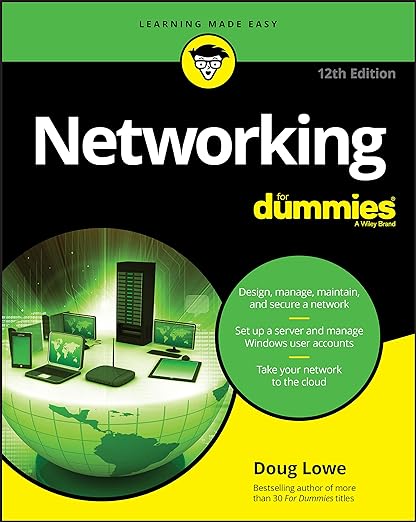
Summary:
Doug Lowe breaks down the complexities of networking into digestible and understandable bits, making the world of routers, switches, and protocols accessible to everyone.
What You'll Learn:
Acquire foundational knowledge about network setup, management, security, and best practices in this must-read for absolute beginners.
Why You Should Read It:
Networking is a cornerstone of IT. Whether you're just starting or need a refresher, this book ensures you're well-equipped to set up, manage, and troubleshoot networks.
Quote From The Book:
"Networking is all about making connections—between computers, data, internet devices, and even people."
About The Author:
Doug Lowe is a seasoned author with over 50 books under his belt. He's renowned for his ability to explain intricate technical concepts in a way that's easy for anyone to understand. Engage with him on LinkedIn.
8. CompTIA Security+ Get Certified Get Ahead by Darril Gibson
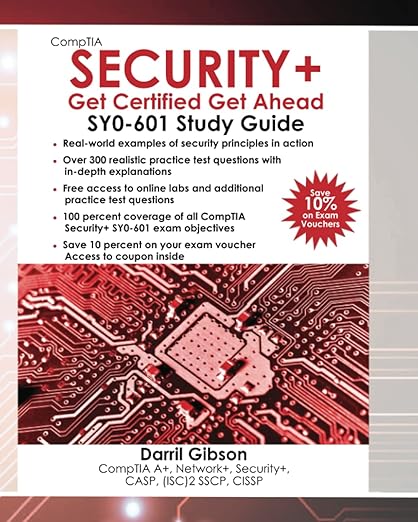
Summary:
Darril Gibson's guide offers an exhaustive review of the CompTIA Security+ exam. It's meticulously designed to equip readers with the knowledge they need to pass and excel.
What You'll Learn:
Understand cybersecurity concepts, tools, and best practices essential for the CompTIA Security+ exam.
Why You Should Read It:
If you're eyeing the CompTIA Security+ certification, this book is your best companion, covering all exam objectives with precision and clarity. You'll learn everything you need to know about cybersecurity.
Quote From The Book:
"Security isn't just about tools and technology; it's also about understanding risks."
About The Author:
Darril Gibson, an IT expert with decades of experience, has penned numerous books on certifications and IT training. His expertise shines through in his clear and concise writing style.
9. Database Design for Mere Mortals by Michael J. Hernandez
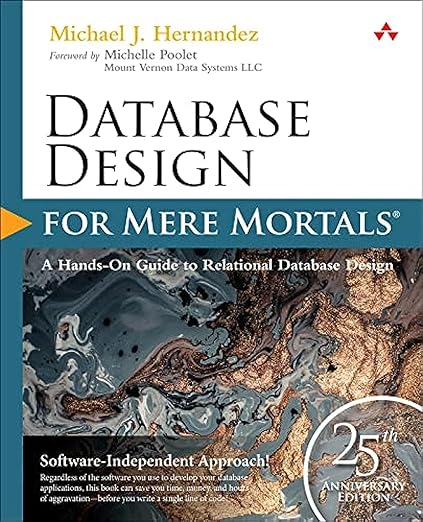
Summary:
Michael J. Hernandez presents an intuitive and non-technical approach to database design. With his guidance, even those new to databases can craft robust and efficient operating systems.
What You'll Learn:
Delve into the principles of database design, from understanding requirements to implementing the final product.
Why You Should Read It:
Database systems are at the heart of many applications. Hernandez's book provides a clear roadmap for designing them without getting bogged down in jargon.
Quote From The Book:
"Good design is the keystone to creating a successful database."
About The Author:
Michael J. Hernandez, a revered figure in the world of database design, has spent years teaching, consulting, and advocating for quality database systems. His expertise and passion for the subject shine brightly in his writings.
10. HTML and CSS: Design and Build Websites by Jon Duckett
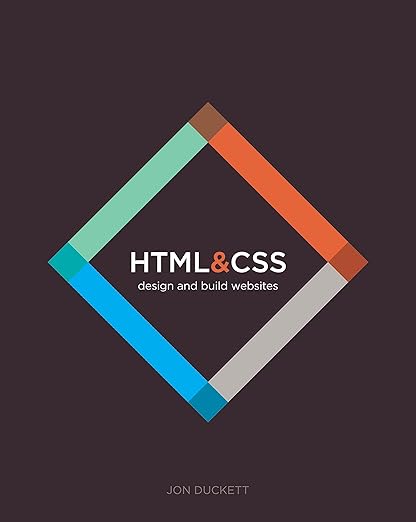
Summary:
Jon Duckett provides a visually rich introduction to the foundational languages of web development: HTML and CSS. Using infographics and clear explanations, the book makes web design accessible to everyone.
What You'll Learn:
Grasp the essentials of HTML and CSS, from basic syntax to advanced design techniques.
Why You Should Read It:
Whether you're a budding web designer or someone curious about web development, Duckett's guide offers a hands-on, visual way to learn and apply HTML and CSS.
Quote From The Book:
"Websites are created by writing code, and then viewed by web browsers."
About The Author:
Jon Duckett, an experienced web designer and developer, has a unique flair for breaking down complex subjects into digestible, engaging content. His work serves as a bridge between design and development.
11. Head First Java by Kathy Sierra and Bert Bates
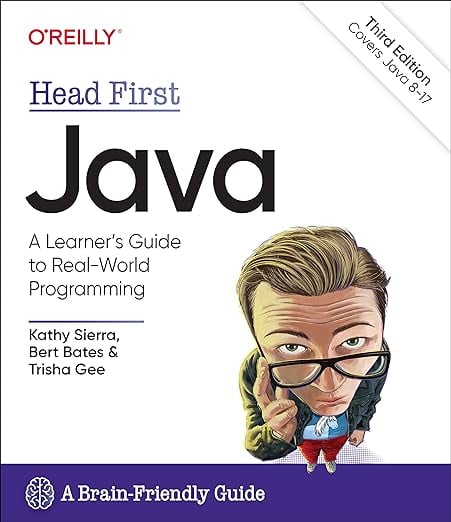
Summary:
"Head First Java" takes a brain-friendly approach to teaching Java. Sierra and Bates use a blend of visuals, puzzles, and real-world scenarios to ensure a deep and lasting understanding of the language.
What You'll Learn:
Master Java fundamentals and dive into OOP concepts, all while having fun with the interactive exercises.
Why You Should Read It:
If you seek an engaging, unconventional journey through Java, this book is your ideal companion. It promises not just to teach, but to make learning Java an enjoyable experience.
Quote From The Book:
"Objects are at the heart of Java, not the dessert after you eat your procedural programming meat and potatoes."
About The Author:
Kathy Sierra and Bert Bates, both Java champions, have a knack for making learning interactive and enjoyable. Their combined expertise and innovative teaching methods have made "Head First Java" a favorite among learners.
12. Beginning Programming All-In-One Desk Reference For Dummies by Wallace Wang
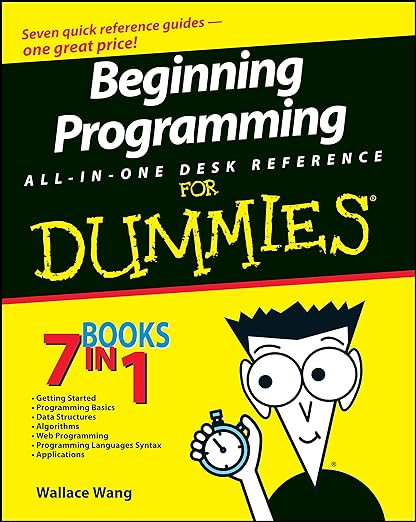
Summary:
Wallace Wang delivers a comprehensive guide for anyone stepping into the world of programming. Covering multiple languages and tools, it serves as a broad primer for budding developers.
What You'll Learn:
Understand programming basics, explore various languages, and get a feel for different development environments.
Why You Should Read It:
If you're unsure where to start in programming, this book provides an encompassing overview, allowing you to discover and choose your path.
Quote From The Book:
"Programming is all about giving instructions to computers, much like training a pet."
About The Author:
Wallace Wang, a seasoned author and programmer, is known for making tech subjects approachable. His writings often cater to beginners, ensuring they grasp foundational concepts with ease.
13. Cloud Computing for Dummies by Judith Hurwitz, Robin Bloor, Marcia Kaufman, and Fern Halper
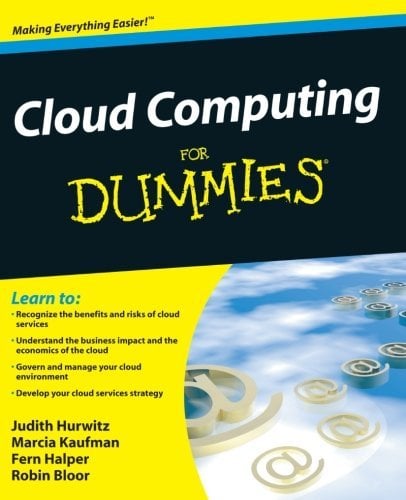
Summary:
"Cloud Computing for Dummies" offers a comprehensive dive into the world of cloud technology. With insights from top experts, this guide simplifies cloud concepts, architectures, algorithms, and applications for every reader.
What You'll Learn:
Gain a thorough understanding of cloud models, services, and platforms in this beginner’s guide
Why You Should Read It:
If cloud computing seems nebulous, this book will ground you. It demystifies cloud jargon, ensuring you're cloud-savvy in no time.
Quote From The Book:
"Cloud computing represents a shift in the way companies think about IT resources."
About The Author:
Judith Hurwitz, Robin Bloor, Marcia Kaufman, and Fern Halper are stalwarts in IT and business strategy. Their collective expertise gives readers a holistic view of cloud technology and its business implications.
14. The Self-Taught Programmer by Cory Althoff
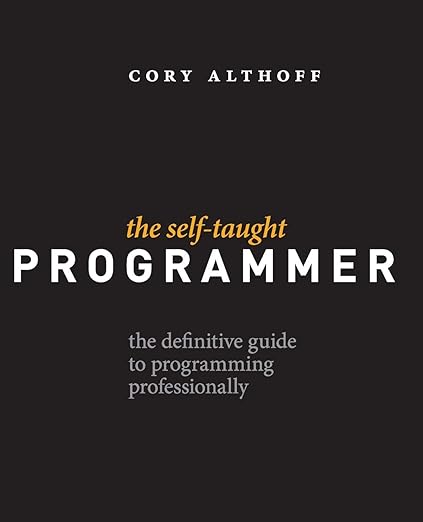
Summary:
Cory Althoff's journey as a self-taught programmer inspired this guide. It's tailored for those wanting to teach themselves coding, offering both technical skills and insights on breaking into the tech industry.
What You'll Learn:
Discover programming basics, best practices, and tips for improving coding skills.
Why You Should Read It:
Ideal for aspiring coders without a formal CS degree, this book equips you with the knowledge and confidence to forge your path in computer programming.
Quote From The Book:
"Learning to code is much more than learning a new skill. It is about creating a new mindset."
About The Author:
Cory Althoff, once a self-taught programmer, is now a seasoned software engineer and advocate for alternative education pathways in tech. His experience is a testament to the book's principles. Stay connected with him on LinkedIn and Twitter.
15. Mastering Blockchain by Imran Bashir
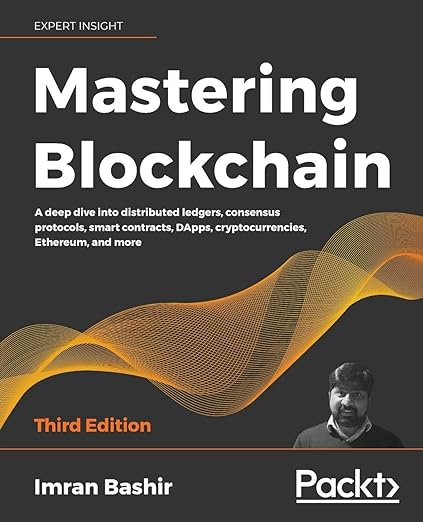
Summary:
Delving deep into the blockchain universe, "Mastering Blockchain" sheds light on the principles, technologies, and potential applications of this revolutionary tech.
What You'll Learn:
Unravel the intricacies of blockchain, its mechanisms, and its potential to reshape industries.
Why You Should Read It:
If blockchain feels like an enigma, this book is your cipher. It provides a clear, detailed exploration of the technology behind cryptocurrencies and beyond.
Quote From The Book:
"Blockchain's potential to disrupt traditional systems is unparalleled."
About The Author:
Imran Bashir is a technologist with a keen interest in the convergence of fintech, artificial intelligence (AI), machine learning, and blockchain. His expertise in distributed systems makes him a sought-after voice on blockchain's transformative power.
16. Cybersecurity – Attack and Defense Strategies by Yuri Diogenes and Erdal Ozkaya
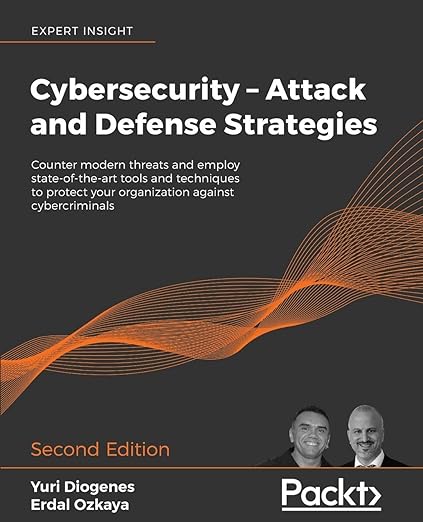
Summary:
In "Cybersecurity – Attack and Defense Strategies," the authors delve into the evolving landscape of cyber threats and offer robust defense strategies to keep infrastructures secure.
What You'll Learn:
Get insights into current cyber threat scenarios and learn to implement effective defense techniques and tools.
Why You Should Read It:
If safeguarding digital assets is your priority, this book provides the tactical advantage to ward off cyber adversaries.
Quote From The Book:
"Understanding the attacker's mindset is the first step in creating a robust defense."
About The Author:
Yuri Diogenes, a seasoned cybersecurity expert, teams up with Erdal Ozkaya, a known figure in IT security, to blend their vast experiences into this enlightening guide. Connect with Yuri on his LinkedIn and Twitter. For Erdal, here’s his LinkedIn and Twitter.
17. IT Architecture For Dummies by Kalani Kirk Hausman and Susan Cook
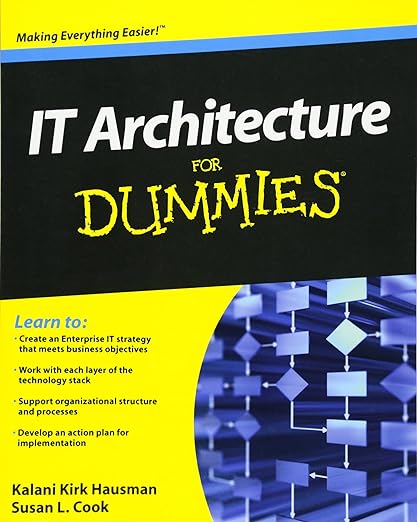
Summary:
"IT Architecture For Dummies" offers a straightforward introduction to the world of IT architecture. Hausman and Cook simplify complex concepts, making the subject approachable for novices and veterans alike.
What You'll Learn:
Grasp the basics of IT architecture, its principles, and how to align it with cybersecurity business needs.
Why You Should Read It:
Perfect for those new to the field or seeking a refresher, this book ensures you navigate the IT architecture landscape with ease.
Quote From The Book:
"Good architecture aligns IT and business goals, creating harmony and efficiency."
About The Author:
Kalani Kirk Hausman has decades of experience in IT operations and governance. Teaming up with Susan Cook, an expert in technology solutions, they bring readers a comprehensive guide on IT frameworks.
Want More?
Looking for more nuggets of IT wisdom? There are endless resources for IT beginners, from tech leadership podcasts to IT management books. Subscribe to our newsletter for the latest insights from CTOs, featuring the best guides, resources, and advice from experts in IT.

